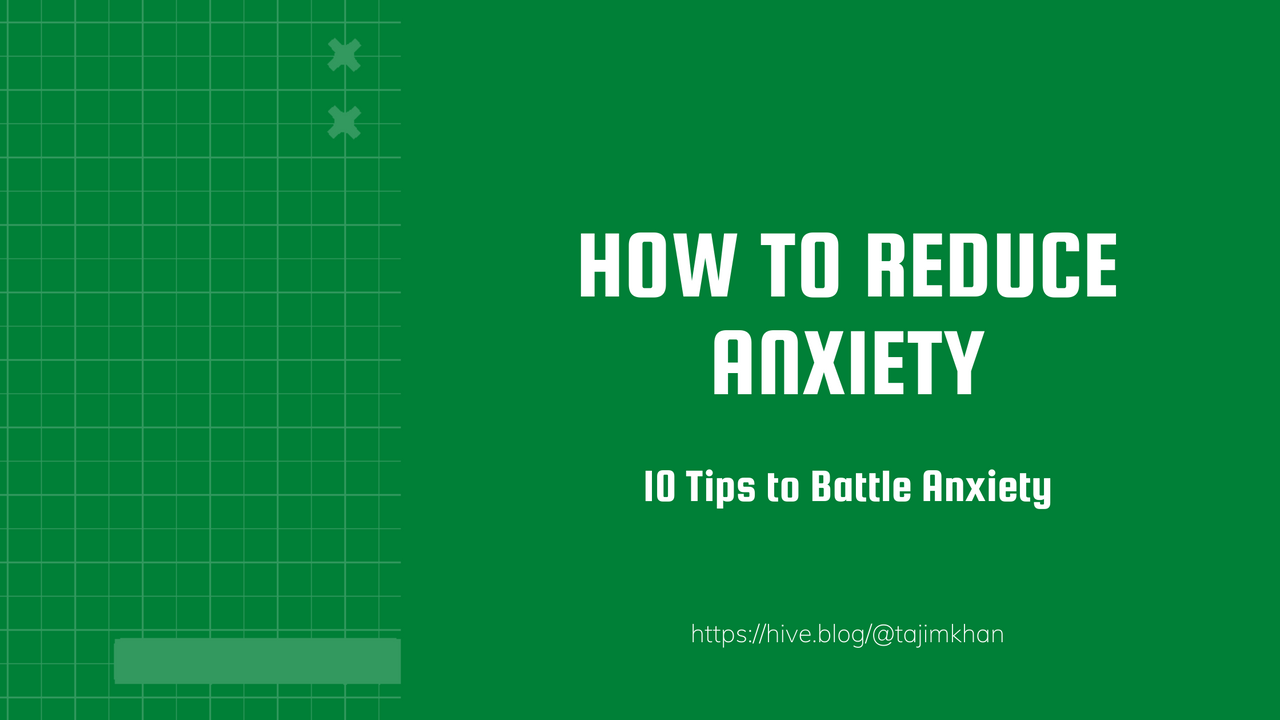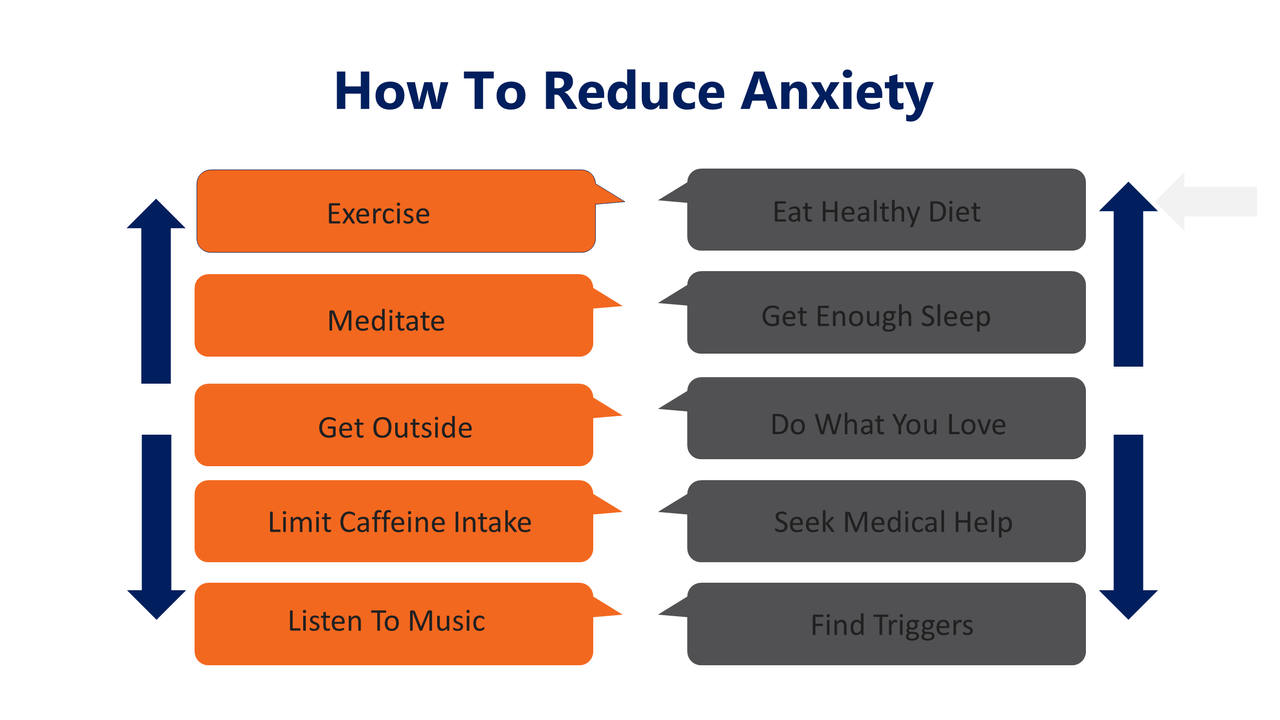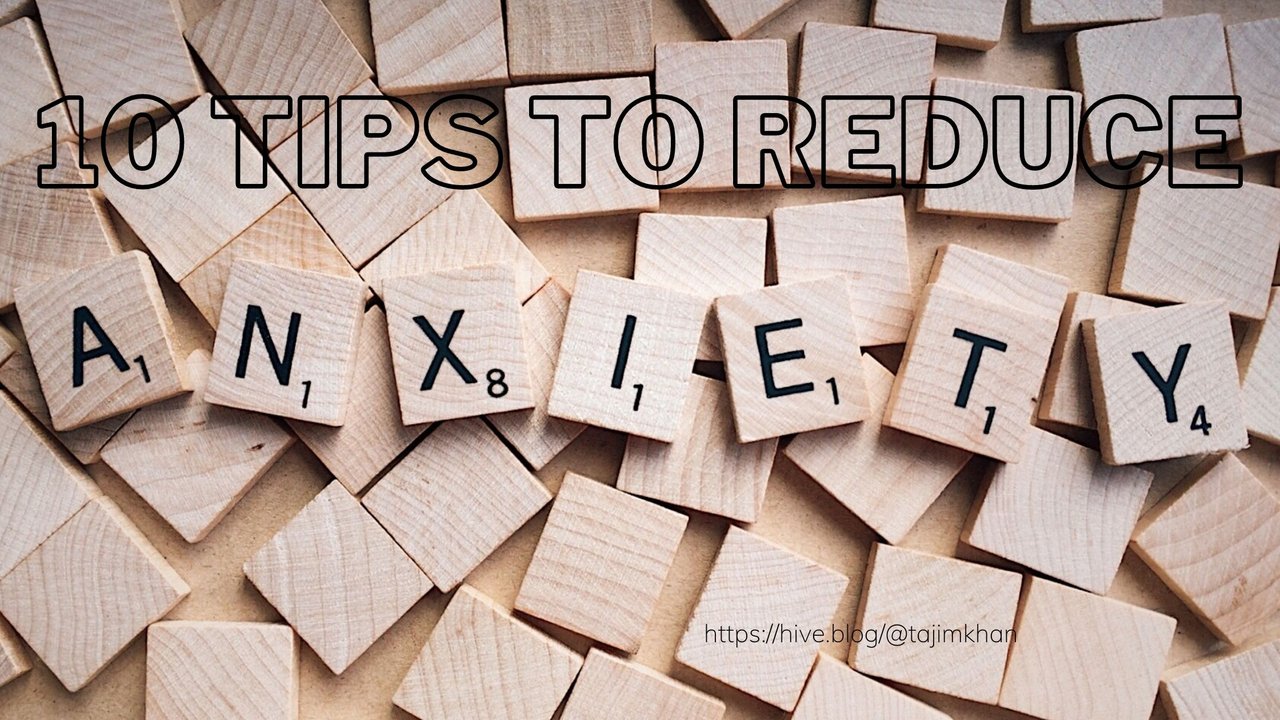Do you feel anxious all the time? Anxiety is a normal human emotion. But when it starts to interfere with your daily life, it can be challenging to cope.
It's hard to live a happy life when you're constantly feeling stressed out, nervous, or worried. But there are things that can help reduce anxiety and make your life better. So I've put together some helpful tips for reducing anxiety in your daily life.
You deserve to feel calm and relaxed! These techniques will help you find peace of mind so that you can enjoy everything life has to offer. These tips will also help you take control of your emotions. So get started with these simple steps today!
Keep on reading this to know how to reduce anxiety now!
Exercise
If you are feeling anxious, a great way to help with that is to exercise. That endorphin boost helps everything! Putting physical stress can reduce your mental stress. Exercise will also help you to have a better sleep. It will also restore your confidence and minimize stress hormones.
However, at first, it may take a while for your body to adjust. As a result, you might feel more tired than before. But over time, it will produce a fantastic result.
Try to pick an exercise which you like. For example, you could try going for a walk and listening to your favorite song (or ambient nature sounds) or just observing your surroundings. The key is being outside of yourself and in the present moment when anxieties arise, instead of obsessing over them.
Meditate
Meditation will remove the negativity and help you to find inner peace. Start with a regular practice of 10 minutes a day.
When anxiety strikes, take 5 deep breaths, then perform a meditation exercise for 3 minutes.
You can choose from different types of meditation, such as visualizing an idyllic place or "mantra" meditation, where you simply repeat a word over and over until your mind is calm.
Once you have started to meditate regularly, the practice will become more effective, and you will be able to reduce anxiety more quickly when it strikes.
As time goes on, try to increase the length of each session and see how far you can push yourself in overcoming anxieties that previously held you back! I would recommend that if you suffer from anxiety or other mental illnesses, meditation is the best way to remove all worries in one go.
Get outside
To help reduce anxiety, it might be helpful to change the environment. Something as simple as going on a walk could have significant benefits. You may go for a walk or bike ride in nature to help clear your head. Try to get some fresh air and sunlight.
Exposing yourself to more sunlight will reduce your anxiety. Sunlight reduces anxiety because it allows the body to produce vitamin D, a natural anxiolytic [reliever of anxiety]. Vitamin D deficiency is associated with stress, hypertension, and cortisol levels. It is also essential for keeping your circadian rhythm stable.
One way to change a mental state is by changing your environment. Environment plays a vital role in our mental health.
Limit Caffeine Intake
Try drinking green tea instead of coffee; it has less caffeine but is still caffeinated enough to give you energy without making you jittery. You should avoid caffeine after a certain time of the day so that you don't disrupt your sleep cycle.
It is recommended to limit coffee intake to one cup per day because any more than that could negatively affect both your energy and anxiety levels; excessive caffeine intake has been shown to cause nervousness, irritability, nausea, shakes/tremors, and even insomnia.
Be sure to check whether any medications or supplements contain caffeine as well - for example, some pain relievers like Anacin contain large amounts of caffeine.
Listen to Music
Music helps a lot to reduce anxiety. But not all music will do the trick; some might harm instead. Try music with relaxing tones like classical music or jazz.
For best results, listen to music that you love and have a special place in your heart. To reduce anxiety even more, play the music yourself on an instrument you're good at playing (e.g., guitar). That way, you help yourself calm down while focusing on learning how to play it instead.
When you're anxious, tunes can help a lot. Tune into a relaxing tune and play it in the background (e.g., classical music). You may also try some specific tunes which help you to sleep and are designed to minimize anxiety.
Eat Healthy Diet
A healthy diet is known to help reduce anxiety and stress. Foods like fruits, vegetables, whole grains, and lean protein will help your mental health.
Foods high in protein and iron, such as turkey and chicken, can help calm anxiety because they provide the amino acid tryptophan for your body to make serotonin. Serotonin is a mood stabilizer that promotes feelings of happiness and well-being. In addition, vegetables that produce Chlorophyll have significant anti-stress properties because it acts as an oxygen catalyst.
When dieting, it's essential to watch your carbohydrate intake. Just like sugar, too many carbohydrates can have negative effects on mental health. Excessive amounts of carbohydrates will often leave you tired and worn out, leading to feelings of stress and anxiety. It's also advised that dieters avoid eating empty calories such as soda or chips.
Sleep Nutrition is just one part of healthy dieting. Getting a good night's sleep plays an equally important role in the way we feel every day.
Get Enough Sleep Each Night
Sound sleep helps a ton to battle against anxiety. If anxiety is keeping you up at night, make sure to take the time to sleep. You can try to read a book before going to bed. Other people might prefer classical music, soft instrumental songs, or nature sounds. Just find out what works for you, and then stick to it!
Also, remember to set the alarm. Oversleeping can cause stress and is not suitable for health either. It is also vital to have a regular sleep cycle.
Try to set aside possible distractions like switching off your phone or keeping it away. You may also try to create a cozy environment to sleep in.
If you are facing trouble sleeping, you can always consult with your doctor. You can often find help there in the form of a prescription-strength sleep aid, which should allow you to get sound sleep again.
Spend Time with People and Things You Love
It is easy to shut out the world and think of how bad life is when anxiety strikes. But when you are doing something important to your heart, anxiety doesn't hit as much as it would before.
Basically, anxiety hits best at those moments when we feel bored or unwanted by anything in this world. So all you need to do is find things which interest you, which you are passionate about, give you happiness, and voila! Anxiety will be away from your life! A win-win situation for sure!
Try spending time with your beloved people. But not those who always keep complaining about their lives. Spend time with friends who make you feel happy and calm.
You may also pick up a hobby—a hobby which you always were on your bucket list. Being distracted is the most crucial thing to stay away from negativity.
Seek Medical Help
People who are coping with anxiety often feel like they are going through it alone. In all honesty, stress can be difficult to cope with, and it may also be difficult for a sufferer to realize that help is available. However, there are people out there that have been used anxiety medication or anxiety supplements and found them helpful in getting themselves back on track.
There are many different forms of anxiety supplements as well as anxiety medications. So the first step an anxiety sufferer should take is seeing a doctor - one who specializes in anxiety - about the best course of supplements or medications for anxiety relief. This will require a bit of research, but there are doctors out there who know what they're doing when it comes down to prescribing these types of products.
Remember that anxiety is not something to be ashamed about; all the most successful people in this world have suffered from anxiety at times.
Find Triggers
Last but not least, be aware of your anxiety triggers. Anxiety triggers are the specific situations that cause anxiety reactions. These reactions will be coming back unless you change what's causing them.
This isn't always an easy process because so many different things trigger anxiety; it could even be something as simple as getting some bad news or seeing someone on the street who looks at you funny. To find out what specifically causes your anxiety, think about when these anxious feelings arise and then try and remember if anything was going on before they happened.
You may try to keep a list. Or consult your friends and family regarding this matter. Sometimes your they may have a better view of this than you.
Conclusion
If you are alone, then anxiety can seize control of you. It is best to talk about your feeling with your friends and family. I have just put together some basic and proven tips to fight anxiety. But it is you who will have to believe in yourself - which will make everything a lot easier.
I hope this article has been helpful and that you have found something in here to help reduce your anxiety. Which of these do you find most beneficial? Do let me know in the comments.
Originally posted here: https://hive.blog/hive-148441/@tajimkhan/how-to-reduce-anxiety-10-basic-tips



No comments:
Post a Comment